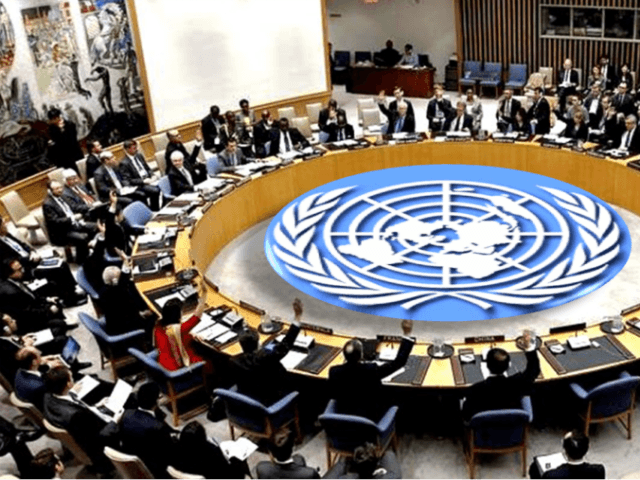NEW YORK CITY–The Trump administration is reportedly moving toward acting alone against North Korea, a sign of increasing U.S. frustration with the stalemate on the issue in the United Nations Security Council.
The Wall Street Journal reported Monday that the administration is moving unilaterally toward tightening sanctions on North Korea, particularly targeting Chinese companies and banks funding the rogue regime’s weapons program. The focus from the administration comes after Pyongyang launched an intercontinental ballistic missile with the ability to potentially reach U.S. cities this month.
The Journal cites recently unsealed court filings as offering clues that the White House is ready to act on its own in sanctioning banks. In those filings, the Justice Department pointed to a network associated with five companies linked to a Chinese national that hid transactions to help finance the North Korean regime.
Analysts told the Journal that some Chinese banks handle allegedly laundered money that could be targeted. While efforts to shut down North Korea’s missile program have stumbled in recent years, officials said the missile launch was a game changer, particularly as it put Alaska within reach.
The Trump administration has shown a more muscular stance on North Korea and had been eyeing more sanctions even before the launch. However, the unilateral option will look more enticing to U.S. officials considering the stalemate in the U.N. Security Council.
While the U.S. has shown a desire to work through the Security Council, with U.S. Ambassador to the U.N. Nikki Haley promising a tough resolution on the matter, the chances of its success seem limited judging from the rhetoric coming from China and Russia during an emergency session called in the wake of the July 4 missile launch.
At that session, China called on all parties to “exercise restraint” and avoid “belligerent rhetoric.” Russia, meanwhile, expressed skepticism as to whether the missile launched was indeed an ICBM, claiming data shows it to be in line with mid-range ballistic missiles.
“This requires thorough clarification and investigation,” Deputy U.N. Ambassador Vladimir Safronkov said, adding that Russia was against any actions that could lead to a “hardening of antagonisms” and “warmongering.”
Safronkov rejected sanctions and military action and instead hailed a joint initiative based on a Chinese proposal involving a “dual suspension and parallel progress” for North Korea, involving a moratorium on missile tests, and would include the U.S. ceasing to conduct training exercises in the region.
Haley was clearly angered by the attitudes of the Russians and Chinese and warned that the U.S. was prepared to go it alone, saying:
If you are happy with North Korea’s actions, veto it. If you want to be a friend of North Korea, veto it. But if you see this as a threat, if you see this for what it is—North Korea showing its muscle—then you need to stand strong and vote with the international community to strengthen sanctions on North Korea and if you choose not to, we will go our own path.
In her initial remarks, Haley also warned that the U.S. was not going to repeat the failed attitudes of the past that had allowed the North Korean crisis to escalate.
“We will not repeat the inadequate approaches of the past that have brought us to this dark day,” she said.
Adam Shaw is a Breitbart News politics reporter based in New York. Follow Adam on Twitter: @AdamShawNY

COMMENTS
Please let us know if you're having issues with commenting.